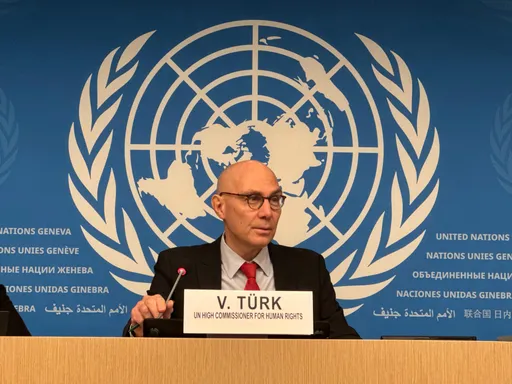The government of India passed an executive order that will send Muslim men to prison for three years for ending their marriage by uttering “talaaq” (divorce) three times. The practice is prevalent among India’s Muslim community, the majority of whom follow the Hanafi Islamic school of law.
The practice of ‘triple talaaq’ or ‘instant divorce’ allows a Muslim man to divorce his wife by saying ‘talaaq’ three times.
The executive order comes after the Muslim Women (Protection of Rights on Marriage) Bill 2017 was not passed by the upper house of the Indian parliament due to opposition to the bill. The bill came after the Supreme Court ruled the practice of triple talaaq as 'unconsitutional'.
The new order is in place for the next six months in the hopes that the Indian parliament will make it law.
According to the new order, if the wife or her blood relative files a case against the woman’s husband for pronouncing the triple talaaq, the husband will now face prosecution; his bail would be dependent on the wife’s testimony and decision. But this raises the concern of false charges against men.
Is this really about justice for Muslim women?
Women’s groups in India have been campaigning for the rights of Muslim women since decades, and welcomed the Supreme Court’s verdict of invalidating triple talaaq. However, there are mixed responses to the new order that essentially criminalises Muslim men.
One of the organisations at the forefront on this movement for the justice of women who are abandoned due to triple talaaq is the Mumbai-based BMMA or Bharatiya Muslim Mahila Andolan (Indian Muslim Women's Movement).
One of their studies found that more than 90 percent of 4,710 women interviewed wanted a ban on unilateral divorce. However, that study was questioned because of the sample size and a singular instance of a man divorcing his wife over SMS.
The executive order comes following Prime Minister Narendra Modi’s professed desire to deliver justice to Muslim women. But this hasn’t impressed everyone: the All India Muslim Personal Law Board (AIMPLB) has previously opposed the move to ban triple talaaq, and thereby, the Supreme Court verdict.
Asaduddin Owaisi, a Muslim politician from Hyderabad, told The News Minute that the Supreme Court, in its verdict on triple talaaq, had stated that if a man pronounces triple talaaq, the marriage does not get dissolved. "Then for what do you want to punish him?" he asked.
Haseena Khan, an activist in Mumbai, expressed her disappointment with the order, adding that this was specifically aimed at targeting Muslim men, under the country’s increasingly Hindu nationalist rhetoric.
“Muslim women suffer in so many other ways that have nothing to do with the Personal Law. We have been talking to the government since last year, suggesting the government that jailing a husband wouldn’t ensure financial support to the wife, besides rendering her isolated in a patriarchal society. Muslim women need jobs, educational opportunities, and implementation of the gender budget. Where are those opportunities for Muslim women?”
Khan has been an activist for over 25 years. Over the years, married Muslim women approach her with a wide range of issues dealing with marital discord, and triple talaaq does not top that list.
“Since the Supreme Court judgement, five married women have approached me, and I directed two of them to approach the police for domestic violence. We already have laws for the redressal of married women, their religion notwithstanding.”
Nasreen Habib, an editor at The Assam Tribune newspaper, said that while the rights of Muslim women need to be protected, sending a Muslim man to jail for triple talaaq does not have any legal basis because the Supreme Court verdict invalidates triple talaaq in the first place.
Others within the Indian Muslim community, far removed from the battles between the courts and the Parliament, are equally dismissive about this new order.
Sameena Patel (name changed upon request), a Muslim woman from Mumbai, who has been married to a Hindu man for seven years doesn’t think this is about ‘justice for Muslim women’.
“This is nothing but religion being mixed with politics. If irresponsible men decide to end the marriage, then is that worse than staying in an unhealthy marriage? At the same time, how would sending the man to jail secure the life of the wife? If the government is so concerned about the justice of Muslim women, where are the alternative programs for them?”























